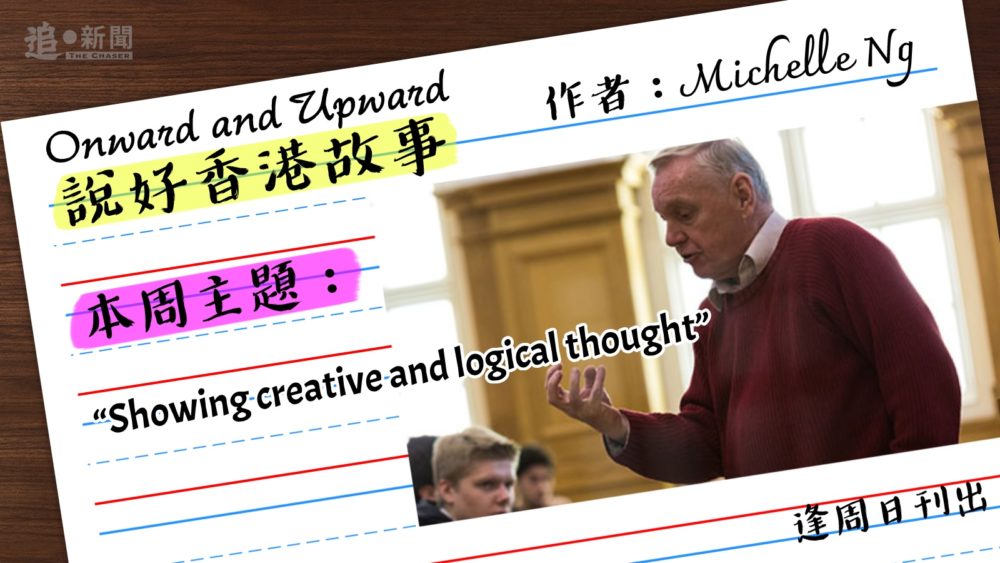
In last week’s piece on college application essays, I pointed out a common issue faced by admissions officers: they often have to decide between applicants whose grades look similar on paper. I went on to argue that to stand out from the crowd, students should write essays that, among other things, can allow the admissions staff to (to quote former Oxbridge Admissions Tutor Barry Webb) see their “creative and logical thought, outside of what they’ve been taught in school.”
In this week’s piece, I will demonstrate how a student may go about displaying his or her “creative and logical thought.” If I were a student applying for college today, below would be an essay I would write (it draws on material that really happened during my teenage years).
College application essay prompt :
Reflect on something that someone has done for you that has made you happy or thankful in a surprising way. How has this gratitude affected or motivated you? (250 – 600 words)
(419 words)
Back in my mid teens, when I was a devoted student of the guzheng (a traditional Chinese string instrument), I was rehearsing on my own in a practice room at a prestigious music academy when a notable flutist who was among its staff happened to walk by. He stood outside, listened to my playing intently for 30 seconds or so, then popped his head in.
“Right now, in this tiny room, you can hear the effects you’re making. But when you’re performing, you need to exaggerate them to the point where they come across as extreme to your ears. Only then can your effects register on your audience.”
He then shut the door and dashed off.
Because the feedback came from a famous musician, I tried my best to apply it. And because of the way it was delivered to me – on impulse, a random act of fate – the occasion never faded from my memory. The passage of time has, in fact, renewed the remark’s freshness to me; as my intellectual sphere slowly broadened, and I saw again and again its parallel in other branches of the arts. When I stumbled across this story about the Ancient Greek sculptor Phidias (480 – 430 BC), for example, I immediately recognized it as a cousin of the flutist’s observation. Phidias and Alkamenes were commissioned by the Athenians to each create a statue of Athena. Phidias made a point of exaggerating the facial features of the goddess; since she would ultimately be placed on a tall column, he reasoned, he wanted to ensure her face would still project the intended degree of drama from afar. Alkamenes, in contrast, held no such consideration. The day came for both statues to be unveiled. When the Athenians viewed Phidias’ Athena at eye level, they were outraged because they thought he had deliberately deformed her features. When both statues were placed up on high, however, it was Alkamenes’ turn to endure scorn.
Now an aspiring writer hoping to study creative writing at your institution, if I were to distill all my thoughts about writing into one insight it would be this: when one is so adept at disengaging oneself from subjectivity that one can look at one’s own writings with the cold clinical critical eyes of a third person, then one has become a decent-enough writer.
I think that flutist would have been gratified to learn how that stray remark of his has since borne fruit in directions neither he nor I would have foreseen.
Watch this interview for more information on my approach to teaching English writing: https://youtu.be/aQbAsMMHPd8
Michelle Ng
英國牛津大學畢業,前《蘋果日報》和《眾新聞》專欄作家,現在身在楓葉國,心繫中國大陸和香港。
聯絡方式: michelleng.coach@proton.me
個人網站: https://michellengwritings.com
🌟加入YouTube頻道會員支持《追新聞》運作🌟
https://www.youtube.com/channel/UC5l18oylJ8o7ihugk4F-3nw/join
《追新聞》無金主,只有您!為訂戶提供驚喜優惠,好讓大家支持本平台,再撐埋黃店。香港訂戶可分享給英國親友使用。



